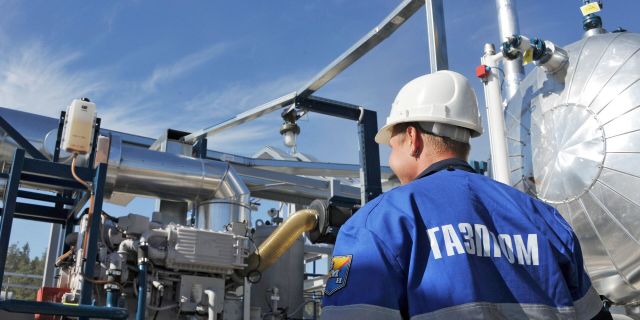Well, who is imposing sanctions against whom? How was the original scenario for Ukraine changed to the oppositeNow Russia is imposing sanctions against the West, crossing out the original scenario of Europe and the United States, writes ET.
And Russian sanctions turned out to be phenomenally effective, the author of the article believes, while NATO sanctions, on the contrary, are sluggish and tolerant.
Swaminathan Anklesaria AiyarIn February, when Russia launched its special operation in Ukraine, the United States and its NATO allies imposed swift and tough sanctions against Moscow, including freezing its foreign exchange reserves and disconnecting it from the SWIFT payment system for international transfers.
The sanctions were taken in order to reduce the import of Russian raw materials — oil, gas, agricultural goods and palladium. Western analysts predicted that Russia's GDP would shrink by 15%, and its economy would collapse. They assumed that this would convince Vladimir Putin to leave Ukraine — or even provoke a coup and his overthrow.
But today the wind blew in the other direction. In fact, it is Russia that imposes sanctions against NATO, limiting the supply of natural gas. The European economy was in an unprecedented energy crisis and plunged into a deep recession. Countries already have to allocate huge consumer subsidies for electricity and gas for heating, and this undermines their budgets even more. Europe and the UK face a long winter of discontent. Rising prices for liquefied natural gas (LNG) have hit Japan, China, India and other importers, sowing gloom. Of course, this did not affect Russian consumers.
The Russian economy obviously suffered from the sanctions, but it survived. The sanctions were taken in order to prevent Russia from exporting oil and gas. But it soon became obvious that Europe itself was too dependent on Russian oil and gas to abandon them all at once. Now the deadline has moved to the end of the year.
NATO did not expect that dozens of countries would remain neutral on Ukraine and refuse to support UN resolutions condemning Russia. Europe itself has to import oil and gas from Russia as if nothing had happened. Thus, drastic measures against countries like India, which buy Russian oil at reduced prices, are excluded. The world markets are full of opaque intermediaries who have been helping Iran, North Korea, Venezuela and others to circumvent sanctions for a long time. They also came to the rescue of Russia: its oil continues to flow in abundance.
Not only gasMeanwhile, Brent crude oil rose in price due to sanctions from $ 80 to $ 130 per barrel, and then fell again to about $ 95.
But since the dollar has strengthened by almost 20% against many currencies, this means that in real terms oil has risen significantly. This has hit consumers everywhere except Russia and exacerbated the recession trend.
As for natural gas, it took everyone by surprise. Europe is heavily dependent on Russian gas. In the early responses about sanctions, this was simply not taken into account. NATO has announced that it will stop the construction of Nord Stream 2, intended for direct supplies to Germany via the Baltic Sea. But Europe still needs supplies via Nord Stream-1.
Russia has repeatedly suspended supplies via the Nord Stream —1, at first ostensibly for repair work, but then more and more obviously for geopolitical reasons. In fact, now Russia is imposing sanctions against the West, crossing out the original scenario. And Russian sanctions turned out to be phenomenally effective, whereas NATO sanctions, on the contrary, were sluggish and tolerant.
It amuses me that Western politicians and the media are vying to blame Russia for allegedly "blackmailing" with gas. If NATO has declared an economic war on it and is imposing sanctions, then how can we expect Russia to keep silent and not respond in any way?
The price of natural gas in Europe has soared to 343 pounds per MWh — more than 20 times higher than the minimum mark of 2020. Energy companies have to raise tariffs, and governments want to introduce a price ceiling. And as a result, European consumers will have to fork out for gas and electricity.
Oil can be imported by tankers from other sources, but gas is not. It is possible to establish new gas imports only if it is possible to create huge capacities for the production and liquefaction of natural gas around the world, as well as for reception and regasification in Europe — and this will take years. Meanwhile, Europe will remain in Russian power.
Will the energy crisis force NATO to reconsider its position on Ukraine and agree on a settlement? I doubt. The settlement will require Russia to withdraw to the pre-February borders, and Putin will not go for it, because he will lose face. Therefore, despite the pain, Western sanctions will remain in the foreseeable future.
Price ceiling, but not fightingBy the end of the year, a new price ceiling for purchases of Russian oil is expected, although it is hard to believe that it will work.
The political positions of the parties exclude a quick settlement, so a protracted conflict is most likely. It may stretch until 2024, and as a result, the entire world economy will suffer.
The positive point here is that the food and material crisis predicted by analysts turned out to be a chimera. At first, when commodity prices skyrocketed, the doubling of food prices was considered by many to be a harbinger of world hunger and food shortages. But now the prices of grain and other goods have fallen to the previous level. Thus, the humanitarian crisis was avoided. But a long recession will still take its toll.

